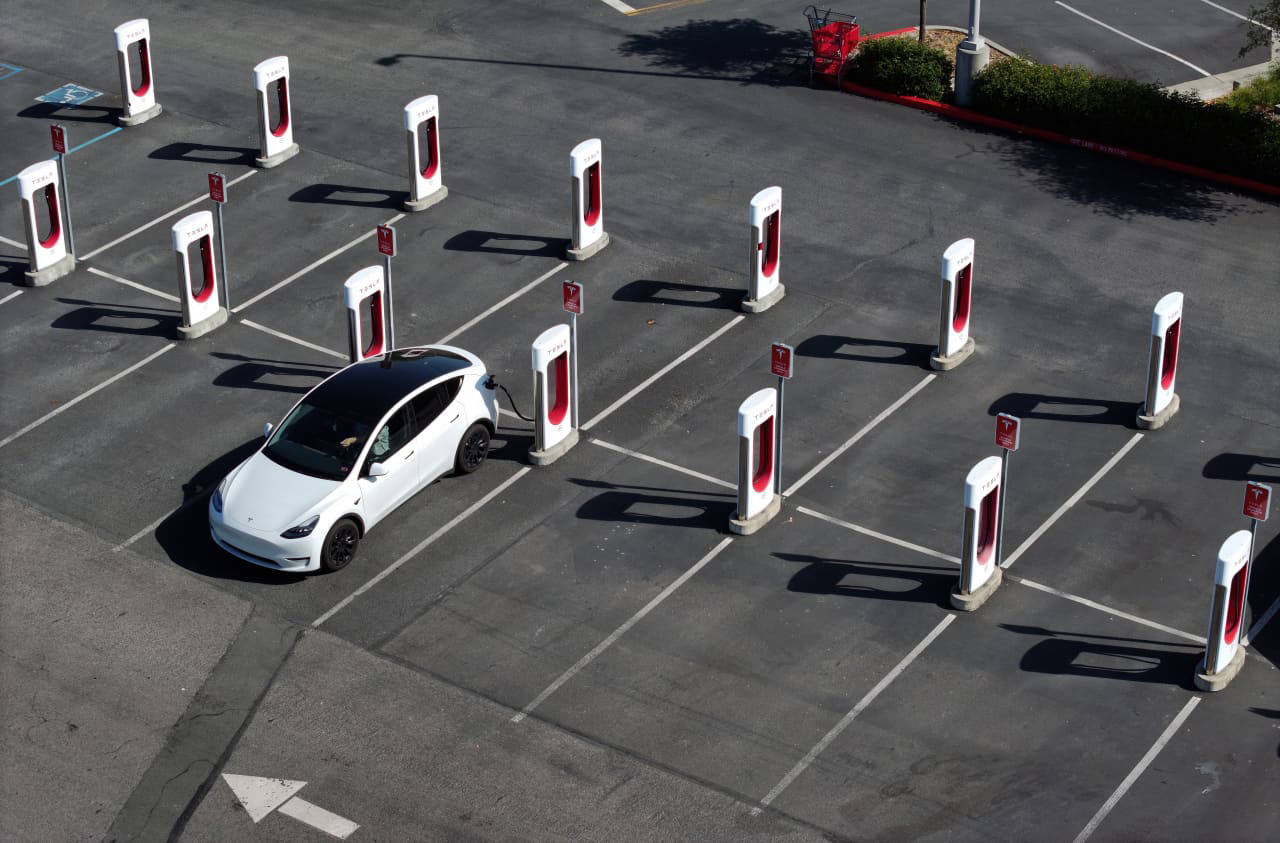The Ongoing Battle: Car Dealers Against EV Mandate Policies

Table of Contents
Financial Strain and Investment Challenges Posed by EV Mandate Policies
EV mandate policies are forcing car dealerships to make significant investments to adapt to the changing market. The high upfront costs associated with EV infrastructure and inventory management are placing a considerable strain on many dealerships, particularly smaller ones with limited resources.
- High initial investment: Dealerships need to invest in new charging stations, specialized tools for EV maintenance, and employee training programs. This represents a substantial financial burden, especially for smaller businesses that may struggle to secure funding.
- Specialized training: Mechanics require specialized training to service and repair EVs, which adds to the overall cost of adapting to the new technology. This training often requires sending staff to specialized courses or bringing in external trainers, both of which are costly.
- Increased inventory costs: EVs typically have a higher price point than gasoline-powered vehicles, leading to increased inventory holding costs for dealerships. This can tie up significant capital, impacting their ability to invest in other areas of the business.
- Decreased short-term profitability: The lower sales volume of EVs in the initial stages of adoption may result in decreased profitability for dealerships in the short-term, even with government incentives.
Smaller dealerships are disproportionately affected by these financial challenges due to their limited access to capital and resources. The lack of sufficient government support for dealership transitions exacerbates the issue, leaving many feeling unsupported in their efforts to comply with EV mandate policies. More targeted financial assistance and incentives could help level the playing field.
Concerns Regarding Consumer Demand and Market Readiness for EV Mandate Policies
Many argue that EV mandate policies are outpacing consumer demand and market readiness. Several factors contribute to this concern:
- Range anxiety and charging infrastructure: Consumers remain hesitant due to concerns about limited range and the availability of reliable charging infrastructure, particularly in rural areas. The lack of convenient and widespread public charging stations continues to be a major obstacle.
- Higher purchase prices: The higher purchase price of EVs compared to gasoline-powered vehicles is a significant barrier for many potential buyers, particularly those on lower incomes. Subsidies and incentives can help, but they don't always fully address the affordability gap.
- Lack of consumer awareness: Many consumers lack awareness about the benefits of EV technology, including lower running costs, reduced emissions, and advancements in battery technology. This knowledge gap needs to be addressed through targeted educational campaigns.
- Infrastructure limitations: Existing infrastructure limitations, such as the electricity grid's capacity to handle a large influx of EVs, also pose challenges to widespread adoption. Upgrades to the grid are needed to support the anticipated increase in electricity demand.
The potential for market saturation and oversupply of EVs, coupled with the issue of equitable access for all income levels, highlights the need for a more balanced approach to EV mandate policies. Simply mandating sales without addressing these underlying concerns risks creating more problems than it solves.
The Role of Consumer Education in Navigating EV Mandate Policies
Addressing consumer anxieties and misconceptions is crucial for successful EV adoption. Improved consumer understanding of EVs, including benefits, costs, and charging options, is paramount. Government-funded educational campaigns can play a vital role in dispelling myths, highlighting the advantages of EVs, and promoting the available support programs. Clear and accessible information about charging infrastructure, tax credits, and other incentives can significantly influence consumer buying decisions.
The Impact of EV Mandate Policies on Dealership Workforce and Training
The shift to EVs requires significant investment in retraining dealership staff. Adapting existing sales strategies and ensuring mechanics possess the necessary skills to service electric vehicles are crucial for dealerships to remain competitive.
- Specialized EV training programs: Dealerships need to invest heavily in training programs that equip their staff with the knowledge and skills needed to sell and service EVs. This includes training on battery technology, charging systems, and specialized diagnostic tools.
- Potential job displacement: Mechanics unfamiliar with EV technology face the risk of job displacement, highlighting the urgency of proactive retraining initiatives. Dealerships should prioritize reskilling their workforce to avoid potential job losses.
- Sales staff knowledge: Sales staff must also be trained to understand the unique features and benefits of EVs and effectively communicate them to potential customers.
Collaboration between dealerships and manufacturers is essential to ensure successful training programs and create a skilled workforce prepared for the future of the automotive industry. Manufacturers could provide training resources and support to help dealerships navigate this transition.
Conclusion
The implementation of EV mandate policies presents significant challenges for car dealerships. From substantial financial investments to workforce retraining and navigating shifting consumer demand, the transition to an electric-dominated automotive landscape is complex. While the goal of reducing emissions and promoting sustainable transportation is commendable, a more collaborative approach that addresses the concerns of car dealerships is crucial. Finding a balance between ambitious EV mandate policies and the practical realities faced by car dealers will be key to ensuring a smooth and effective shift towards electric vehicles. Further dialogue and strategic planning involving policymakers, manufacturers, and dealerships are necessary to navigate the complexities of EV mandate policies and ensure a sustainable future for the automotive industry. Let's work together to find solutions that support both environmental goals and the economic viability of car dealerships.

Featured Posts
-
 The Baba Yaga Transformation A John Wick Themed Experience In Las Vegas
May 12, 2025
The Baba Yaga Transformation A John Wick Themed Experience In Las Vegas
May 12, 2025 -
 A Surpreendente Qualidade Da Adaptacao Em Quadrinhos Estrelada Por Sylvester Stallone
May 12, 2025
A Surpreendente Qualidade Da Adaptacao Em Quadrinhos Estrelada Por Sylvester Stallone
May 12, 2025 -
 The Most Impressive Beach Houses On Mtv Cribs
May 12, 2025
The Most Impressive Beach Houses On Mtv Cribs
May 12, 2025 -
 10 Photos Fueling The Benny Blanco Selena Gomez Cheating Controversy
May 12, 2025
10 Photos Fueling The Benny Blanco Selena Gomez Cheating Controversy
May 12, 2025 -
 Semana Santa En Uruguay Por Que Semana De Turismo
May 12, 2025
Semana Santa En Uruguay Por Que Semana De Turismo
May 12, 2025
